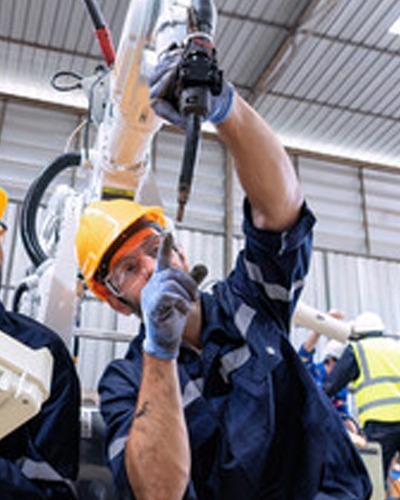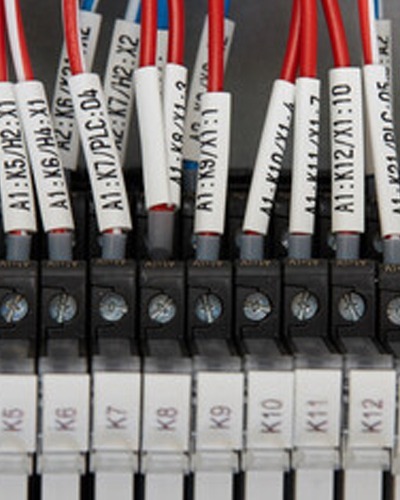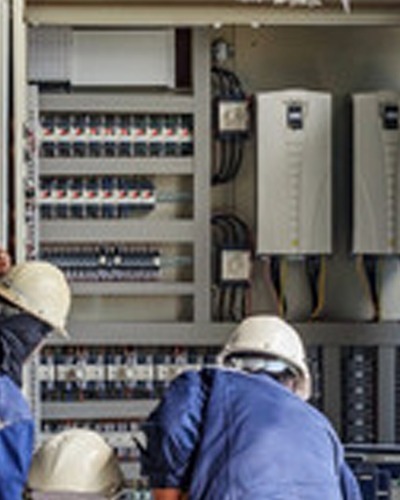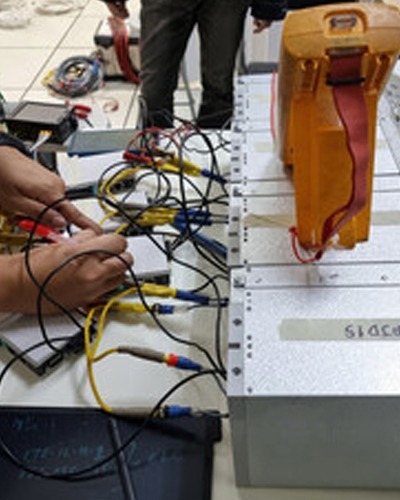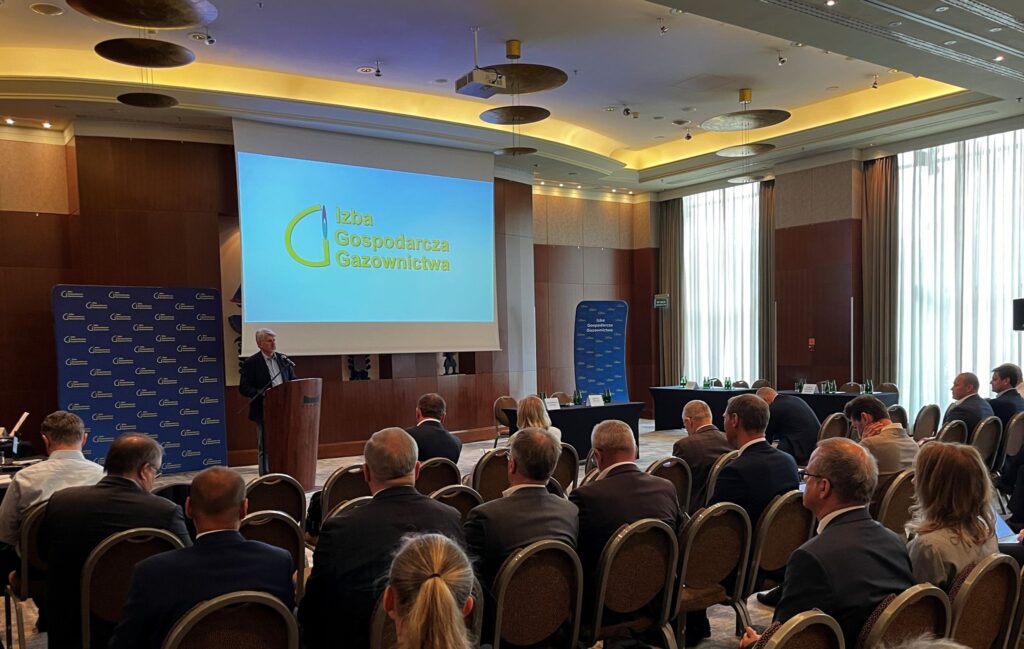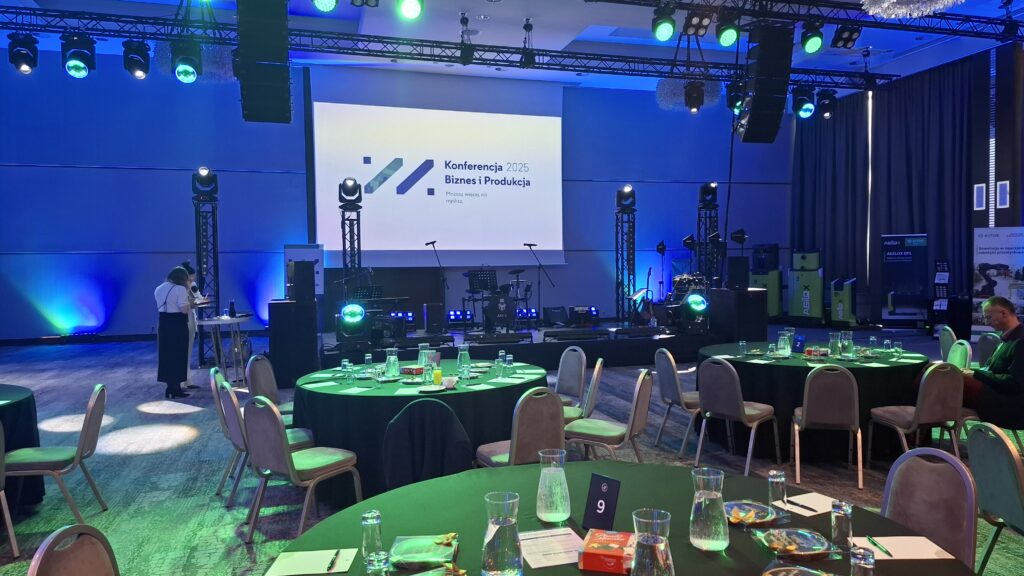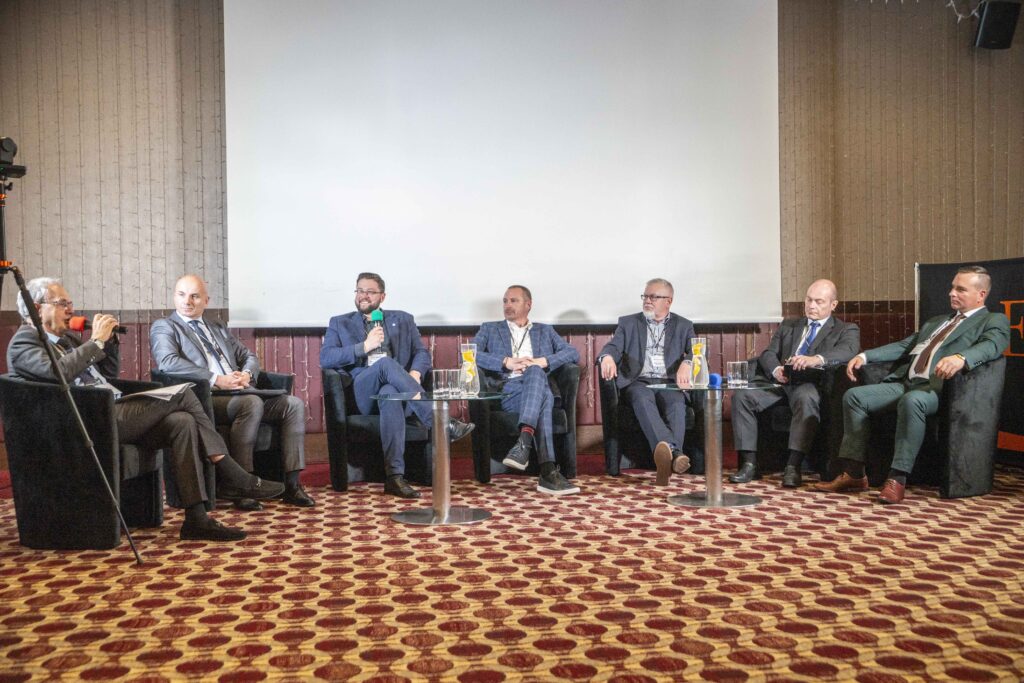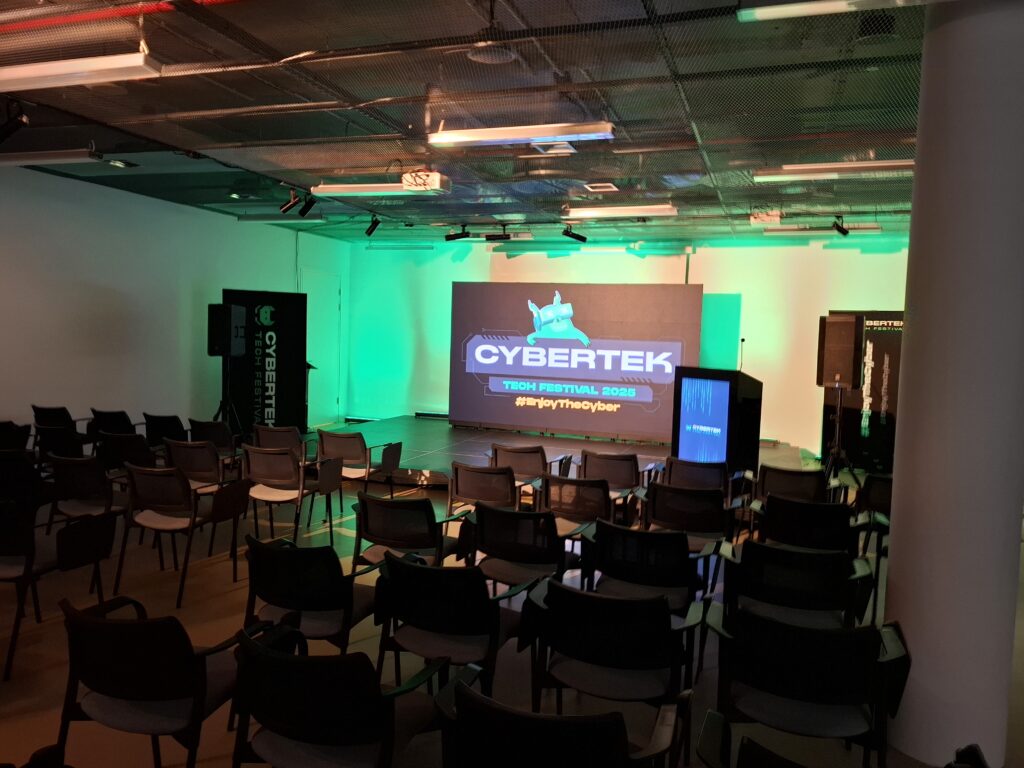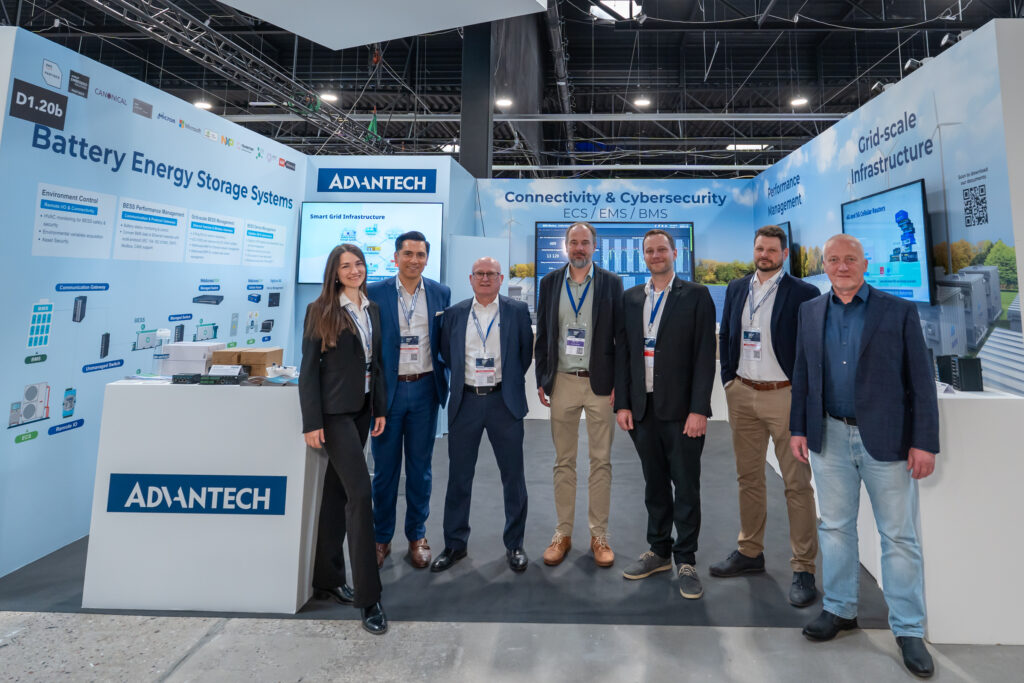Industrial automation

Our solutions are 100% focused on your company’s needs. We offer you support from the analysis stage to full implementation and validation. With our knowledge and experience in designing, programming individual PLCs and SCADA systems, as well as entire DCS-class systems, we are able to optimize your production process. The solutions provided will eliminate bottlenecks and improve quality and increase control at each stage.
Automation reduces costs through efficient use of resources. A well-thought-out concept, reliable equipment and the expert knowledge of our Engineers guarantee that the expenses incurred quickly pay off with increased quality and improved safety.



Competitive Advantage
We are part of the renowned Transition Technologies Group, which has been creating the future of industrial technology since 1991. The group includes 21 companies, employs more than 2,280 specialists and operates from 27 offices around the world, operating with 100% Polish capital. Our mission is to provide innovative technology solutions that drive global industry growth.
- Innovation: We constantly invest in the latest technologies to keep our solutions at the forefront of innovation.
- Experience: More than three decades in the industrial technology market provide us with the knowledge and skills needed for the most demanding projects.
- Quality: We are ISO 9001:2015, ISO 27001:2013 and ISO 45001:2018 certified, confirming our commitment to the highest standards of quality and safety.
When you choose our solutions, you are investing in the future of your business – a future that is innovative, efficient and sustainable.
Facts that speak for themselves
in Europe
Rozwiązania dla branż
Rozwiązania dla branż
Rozwiązania dla branż
Rozwiązania dla branż
Rozwiązania dla branż
Step by Step
From detailed analysis to the implementation of PLCs, SCADA systems and industrial robots, we increase production efficiency and quality. Prefabrication of control cabinets and DCS programming minimize operating costs. We offer full support at every stage of implementation and continuous monitoring, maximizing the benefits of automation.
Opinions of Our Customers

”
From the very beginning of our cooperation, Transition Technologies-Control Solutions has made itself known as a reliable partner. What set them apart was their creative approach at the bidding stage. We were presented with several proposals for solutions based on which we could choose a target direction.
During implementation, on the other hand, they acted with determination, solving successive problems that arose. Faced with the fact that the project was implemented in a difficult market environment, we often had to work together and develop remedies, often through compromise. Also, during the operation of the site, they reacted constructively and quickly to faults as they appeared.
TT-CS has proven itself as a trusted partner in challenging projects. We positively look forward to working together on future mechanical engineering projects.
Adam BombaProcess Manager
Our experts guarantee the quality of services

He graduated from the Wroclaw University of Technology, majoring in automation and robotics, and from the University of Wroclaw and Lodz, where he studied Computer Science.
He has been with Transition Technologies Group since 2008, and has actively participated as a solution integrator in many projects around the world, in the field of industrial automation in the energy sector.
Since 2022, he has been the Director of Industrial Automation. strategic projects. He is responsible for the implementation of key projects for the company, mainly in the energy and Gas & Oil sectors at Transition Technologies-Control Solutions.

He is a graduate of Wroclaw University of Technology, where he completed his master’s degree in Automation and Robotics at the Faculty of Electronics, and Wroclaw University of Economics, where he completed postgraduate studies in Project Management. He has been an active engineer since 2011, focusing his interests in the area of process automation. He has been with Transition Technologies Group for more than five years, serving as an engineer and designer (instrumentation and control systems).
Since 2022, he has served as Manager in the Strategic Projects Department at Transition Technologies-Control Solutions.
He is a member of PIME. He holds Prince2 certification, which confirms his competence in managing large projects.
Its portfolio boasts a number of projects on strategic facilities and for critical infrastructure, including. leading the ACP work on the construction of Baltic Pipe.
He is currently expanding his knowledge and competence in the area of functional safety and hazard analysis.

A graduate of Kielce University of Technology, where he majored in Environmental Engineering at the Faculty of Construction and Environmental Engineering. His entire career has been in the technical industry, where he effectively combines engineering knowledge with business and interpersonal skills to support sales processes for technology and engineering solutions.
To grow in the field of industrial automation, he joined the TT-CS team. He is passionate about aquariums and terrariums, creating and nurturing complex ecosystems for aquatic and exotic animals. His hobby requires precision and patience, which is reflected in his professional approach to his work

A graduate of Wroclaw University of Technology, where he graduated in 1990 with a degree in Electron Technology from the Department of Electronics. He began his career as an assistant designer at the “Record” Automation Systems Company.
He has been with Transition Technologies Group for more than 26 years.
For more than 12 years, he has served as Project Manager at Transition Technologies-Control Solutions.
In his role, he manages the implementation of industrial automation projects.
We Are Here to Help
Are you interested in our offer?
Write to us for a personalized consultation.
- Individual counseling
- Tailored solutions
- Quick implementation
- Experts with experience
Fill out the form and get a free consultation
Questions
and answers
In the FAQ section, you will find answers to key questions about our services and processes, based on knowledge and experience. Our goal is to dispel doubts and provide clear information.
How does automation affect industrial production?
Automation of production processes affects industrial production by replacing manual labor with machines and industrial robots. This makes it possible:
- Increase production efficiency by performing tasks faster and more precisely.
- Improved product quality, with greater repeatability and fewer errors.
- Reduced costs, thanks to savings from reduced consumption of materials and energy.
- Improving working conditions by eliminating monotonous and dangerous tasks.
What are the advantages of automating production processes?
Automation advantages of automating production processes include:
- Increased productivity: Automation allows tasks to be performed faster and more precisely, resulting in greater production efficiency.
- Quality improvement: With greater repeatability and fewer errors, automation helps improve product quality.
- Cost reduction: Automation saves money by using less material and energy, resulting in lower production costs.
- Improving working conditions: Automation eliminates monotonous and dangerous tasks, which contributes to better working conditions for employees.
What is the impact of automation on production efficiency?
Automation of production processes affects production efficiency by:
- Increasing speed: Industrial machines and robots are able to perform tasks faster than manual labor, resulting in greater production efficiency.
- Increased precision: Automation allows tasks to be performed with greater precision, helping to improve product quality and reduce errors.
- Reduced downtime: Thanks to automation, industrial machines and robots are able to operate for longer periods of time without downtime, resulting in greater production efficiency.
- Improving energy efficiency: Automation allows optimization of energy consumption, helping to reduce production costs and improve energy efficiency.
In summary, the automation of production processes contributes to increasing production efficiency, improving product quality, reducing costs and improving working conditions. As a result, companies can achieve better results and be more competitive in the market.
Safety in modern automation systems
Safety automation and security systems are an integral part of modern industrial automation systems. Their task is to provide protection for both workers and machines and equipment. In modern automation systems, safety aspects include:
- The use of appropriate safety barriers, such as guards or light curtains, which protect workers from dangerous areas of machinery.
- Implementation of emergency stop systems (E-Stop) that allow machines to be shut down immediately in the event of an emergency.
- The use of redundancy in control systems, which allows work to continue if one of the system components fails.
- Monitor and analyze security-related data to identify potential risks and implement appropriate countermeasures.
In summary, modern industrial automation systems offer advanced features that allow efficient management of production processes, take care of the environment and ensure safety for workers and machines. As a result, companies can achieve better results and be more competitive in the market.
What are the benefits of automating manufacturing processes?
Automation of production processes brings numerous benefits, including:
– Increased production efficiency
– Improved product quality
– Reduced operating costs
– Increased occupational safety
– Optimized energy and raw material consumption
What are the most common components of industrial automation systems?
The most common components of industrial automation systems include:
– PLCs (Programmable Logic Controllers)
– SCADA (Supervisory Control and Data Acquisition) systems
– Industrial robots
– Sensors and drives
– DCS (Distributed Control Systems)
What are the steps in implementing an automation system?
Automation system implementation steps typically include:
– Needs analysis and evaluation of existing processes
– Solution design
– Prefabrication of control cabinets and system integration
– System installation and testing
– Personnel training
– Author supervision and servicing
How long does it take to implement an automation system?
The time to implement an automation system depends on the complexity of the project and the customer’s specific requirements, but on average it takes from a few weeks to a few months.
What are the main challenges in implementing industrial automation?
The main challenges are:
– Integration of new systems with existing ones
– Training of personnel
– Maintaining production continuity during implementation
– Managing investment costs
How does automation affect workplace safety?
Automation can significantly improve workplace safety by eliminating the need for humans to perform monotonous, repetitive and dangerous tasks, reducing the risk of accidents and injuries.
What are the latest trends in industrial automation?
Recent trends include:
– Integration with the Internet of Things (IoT)
– Use of artificial intelligence (AI) and machine learning
– Automation using collaborative robots (cobots)
– Development of 5G technology in the context of industry
What are the costs of implementing an automation system?
The cost of implementing an automation system depends on a number of factors, such as the scale of the project, the complexity of the system, the type of technology used and the customer’s specific requirements. The investment in automation usually pays for itself through increased efficiency and reduced operating costs.
Is industrial automation profitable for small and medium-sized enterprises?
Yes, industrial automation can be profitable for small and medium-sized companies because it improves productivity, reduces operating costs and increases competitiveness in the marketplace. Scalable solutions are available that can be customized to meet the needs of smaller companies.
What are the best practices in maintaining industrial automation systems?
Best practices include:
– Regular inspections and maintenance
– Real-time monitoring of systems
– Software updates
– Staff training
– Work with experienced service technicians


